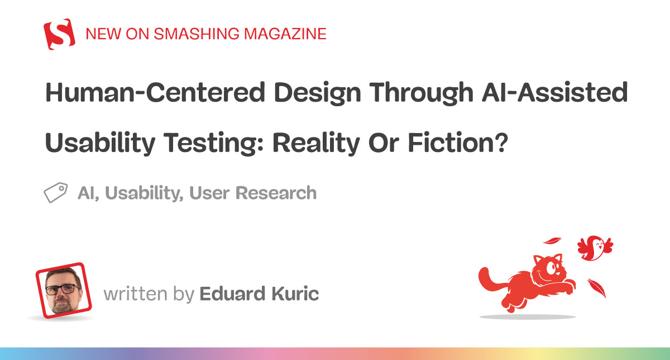Smashingmagazine
2M
440

Image Credit: Smashingmagazine
Human-Centered Design Through AI-Assisted Usability Testing: Reality Or Fiction?
- Unmoderated usability testing with online tools offers advantages such as flexibility and cost-effectiveness.
- Challenges of unmoderated testing include lack of adaptive questioning and potential data gaps.
- Integrating AI, like Large Language Models (LLMs), could enhance data collection and feedback in usability testing.
- An experiment using GPT-4 in a usability test for an e-commerce website revealed mixed results.
- AI-generated follow-up questions showed limitations in uncovering new issues and led to participant frustration.
- Contextual sensitivity is crucial for AI-generated questions in usability testing to be relevant and effective.
- Balancing AI and human control in usability testing can lead to richer insights and better user experiences.
- Ethical considerations, data privacy, and user consent are essential when integrating AI into research.
- AI has the potential to enhance usability research, but human oversight is necessary to ensure validity and reduce biases.
- A balanced approach, where humans leverage AI as a partner in research, can lead to better insights and user experiences.
- Humans collaborating with AI can result in improved usability testing and more meaningful outcomes.
Read Full Article
26 Likes
For uninterrupted reading, download the app